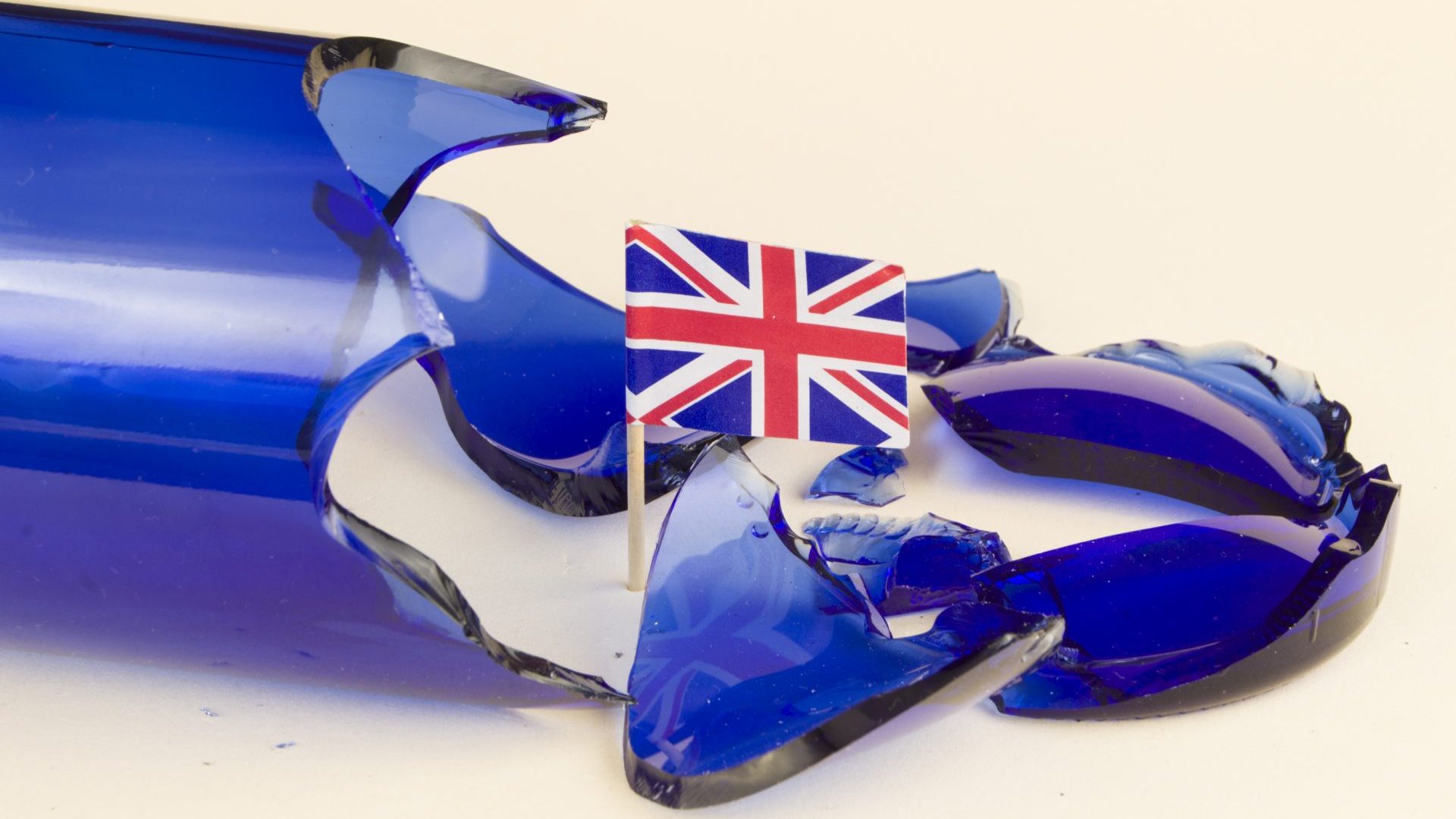“It is total, absolute abject chaos.” Those were the words of ITN’s Tom Bradby back in October 2022 as the Liz Truss era clattered to its close with jostling in the Westminister lobbies.
What has really changed? Rishi Sunak may have re-established a semblance of order, but beneath the surface, chaos continues to abound. The perpetual Tory civil war is one factor in this, but there is another agent of chaos – one that has made Britain a poorer, smaller country.
As we mark the fourth anniversary of the UK officially leaving the European Union, the UK is still reeling from the consequences of Brexiting without a plan. The country appears to be stuck in the first stage of grief – denial – as it struggles to come to terms with the realities of its new status. The reality of the consequences of being a third country and outside the EU.
The Conservatives’ detachment from truth and reason has done untold damage to the public’s faith in politics, to the reputation of our democracy, and to our place on the world stage. The deceitful politics that led Britain into this trajectory of tragedy is a continued hangover from the Brexit campaign.
Who can forget that notorious red bus? “We send the EU £350 million a week – let’s fund our NHS instead,” the populist slogan read. Infamously, this has since been exposed as utter fiction. Before Brexit, the NHS was struggling. Now, this beloved institution, once a source of national pride, is floundering after 14 years of Tory rule. So much for the false hopes promulgated by Vote Leave.
The sting is also felt at local level. In the Surrey constituency where I am standing at the next election Ewell House Pharmacy (Kelly’s Chemist) in Ewell Village, speaks for many pharmacists on the dire state of medicine supplies now we have left the EU: “The delays in getting people their medicines as a result of the additional red tape we have to complete since Brexit has had a major impact on the ‘Just In Time’ system we have had in place for years. We are not certain that Brexit is the only reason, but we know that these processes worked very well before we left the EU.”
Turning to economics, the evidence of the damage done by Brexit is undeniable and across every sector. Yes, we have experienced an economic environment affected by the Covid-19 pandemic, high inflation, and geo-political unrest, but as we approach the fourth anniversary of the official departure from the EU, we are better able to separate and assess Brexit’s impact on the economy.
The Office for Budget Responsibility estimates that Brexit will have a long-term effect of reducing UK GDP by 4%, a figure that has remained unchanged since early 2020. Right now, according to the National Institute of Economic and Social Research, UK real GDP is already some 2-3% lower due to Brexit, compared to a scenario where the UK had remained in the EU. This corresponds to a per capita income loss of approximately £850. The NIESR’s longer-term estimates are even more gloomy than the OBR’s, indicating that the negative impact of Brexit gradually escalates, reaching 5-6% of GDP or £2,300 per capita by 2035.
Post-pandemic, the UK remains the only major rich economy that is smaller than it was beforehand. Another report by the Centre for European Reform revealed that the UK’s goods trade is 7% lower, and investment 11% lower than it would have been had the Remain campaign won in 2016.
Paperwork requirements for EU businesses sending animal and plant products to the UK are finally beginning after five delays to the Border Target Operating Model (BTOM) and will ratchet up with physical checks in April with safety and security declarations in October. We need to prepare for continued supply chain headaches and higher grocery store price tags. This is in addition to prices increasing due to the continuing war in the Ukraine and crisis in the Red Sea.
Meanwhile, foreign direct investment (FDI) in the UK collapsed after Brexit. In 2021, foreign firms pulled more investment from the UK than they put in – and while 2022 was an improvement from that sorry stat, FDI inflows still stood at less than a fifth of the average in the three years prior to the pandemic.
The crippling effects brought about by irresponsible, ideologically blinded Brexiters mean we must learn to walk again, whilst our peers run ahead. Four wasted years.
But there is hope. The British public is becoming more and more aware of what we have lost and is seeing through the lies and empty promises.
Recent polling suggests that attitudes towards Brexit have become more critical, particularly among those who voted Leave in 2016 – and those who were too young to vote at all then.
Generation Z watched helplessly as Brexit was decided as they were too young to have a say. Now, on the fourth anniversary of Brexit, they are coming out in force to have their voice heard as they will have to live with the effects of this political folly.
A poll we commissioned at the True & Fair Party found that more than three in four (76%) of under 26-year-olds are planning to vote, well up on the 47% who did in 2019. And more than half of them actively want to rejoin the EU.
This group has spent its formative years watching the fallout from Brexit. We owe it to them to give them a fighting chance to get their Britain back on track – by getting on the road to rejoin.
Gina Miller is leader of the True and Fair Party and standing as the prospective MP for the Epsom and Ewell constituency










